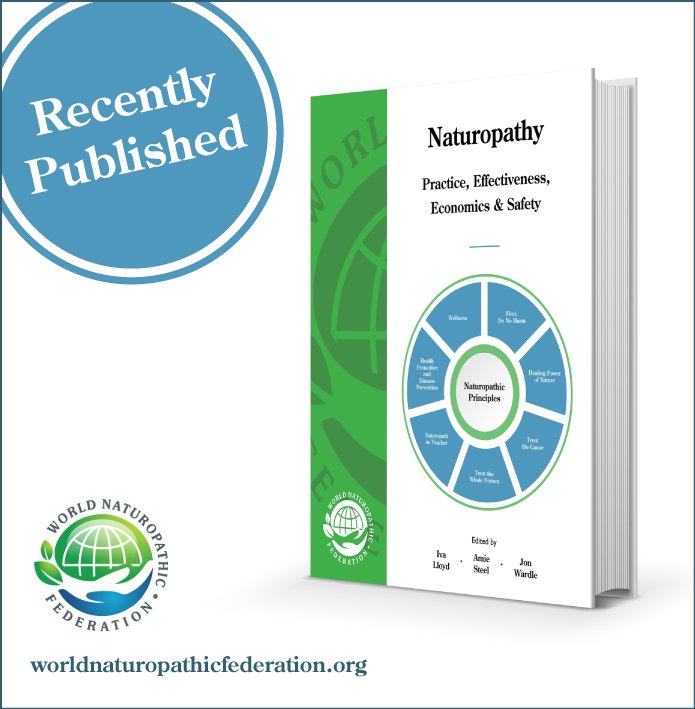First Overview of Naturopathy Worldwide – How are we doing?”
The World Naturopathic Federation, which represents Naturopaths in all WHO regions, has just completed its first Health Technology Assessment (HTA) into the Profession as a whole, including New Zealand Naturopaths, giving an accurate account of the Practices, Safety, Economics and Effectiveness of Naturopathic care. Naturopathy is a distinct traditional and complementary system of medicine practised around the world, and globally recognised as a safe, viable system of healthcare by the World Health Organisation (WHO).
The scope of the HTA was informed by research conducted by the international naturopathic community over the last thirty years. It encompasses over 2,000 peer-reviewed scientific articles including a review of more than 300 clinical studies involving over 100 different health populations. Seven international surveys of the naturopathic profession were conducted to support the findings reported in the HTA.
Here's how we are doing
The Global Landscape of Naturopathy:
Naturopathy has strong historical and cultural roots in Europe in the 19th Century, which is considered its traditional home. However, North America is considered the home of Modern Naturopathy as this was where education, protocols and practices became more advanced, since the early 20th Century. Since then, it has quickly expanded into the Western Pacific, Africa, Latin America and Asia. Today 107 countries around the world have a Naturopathic workforce. There are currently approximately 110 000 Naturopathic Practitioners worldwide, accounting for 5.5 million Naturopathic patient visits per month.
There are currently 131 Naturopathic Educational institutions globally, teaching two main educational programmes, doctorate-level training programmes (over 4000 hours) and practitioner-level programmes (2500 hours). In some North American states, Naturopathic Doctors are recognised as Primary Healthcare Practitioners.
Typical Naturopathic Practices:
A typical Naturopathic visit anywhere in the world will generally involve the prescription, recommendation or use of an average of 4 different naturopathic treatments or therapies, due to it being a complex holistic discipline. Core therapies are:
Applied & Clinical Nutrition
Herbal Medicine
Lifestyle Modifications, Yoga, Physical Medicine
Counselling, Mind Body Medicine
Hydrotherapy
Other therapies based on jurisdictional regulations and naturopathic education.
Economics:
Globally, Naturopathy is covered by Health Insurance or out-of-pocket costs borne by consumers, rather than government funding, which reduces the accessibility of Naturopathic care. Economic evaluation has reliably shown it to be cost effective, particularly in the longer term for patients with chronic health conditions. Studies also suggest societal economic benefits such as reduced absenteeism and lower overall insurance costs per person. Naturopaths are well suited to play a more formal role in public health.
Safety:
Direct risks associated with Naturopathic care are infrequent and usually minor, e.g. temporary adverse reaction to botanicals. The typology of risks are what could be expected of any health profession with a substantive primary healthcare role, and are substantially less than other practitioner groups performing similar roles.
Effectiveness:
Naturopaths treat diverse physical and psychological concerns throughout the full range of a person’s life, from fertility and perinatal to palliative care. Most naturopaths focus on complex chronic health conditions and are also advocates for preventative medicine.
Naturopathic researchers have published 235 original clinical research articles investigating a wide range of health interventions in diverse sample populations. Overall, 81.1% of studies on the effectiveness of treatments showed a positive response, including;
Gastro-Intestinal Disorders are among the top reasons patients seek Naturopathic care, and showed an 82.4% positive response, including Irritable Bowel Syndrome, Inflammatory Bowel Disease, Celiac Disease, hepatobiliary and pancreatic conditions, and many other disorders.
Endocrine Conditions, including Type II Diabetes Mellitus, Metabolic Syndrome showed 89.3% positive outcomes.
Women’s Health conditions such as Menopause and Menstrual dysfunction play a significant role in Naturopathic care, as around 70% of Naturopathic patients are female.
Other Health concerns that respond well to Naturopathic treatments are Cardiovascular Conditions, Mental Health, Musculoskeletal and Neurological Conditions, Skin Conditions, Complex Immune Conditions, Cancer and Cancer related Conditions, Obesity, Respiratory and Genitourinary Conditions.
NMHNZ Naturopaths
NMHNZ Registered Naturopaths aim to progress and protect the development of Naturopathic Medicine in New Zealand and provides a guaranteed standard of education and professionalism for patients seeking our Naturopathic care. New NMHNZ members are required to hold a minimum of a 3 Year Bachelor’s Degree in Naturopathy. In 2025, we are moving to a minimum of a 4 Year Batchelor’s Degree.
We uphold professional protocols and standards, and we are passionate about providing the best care and outcomes for our valued clients!
Yours in health,
Camille Hoffman
Naturopath, Nutritionist & Medical Herbalist



